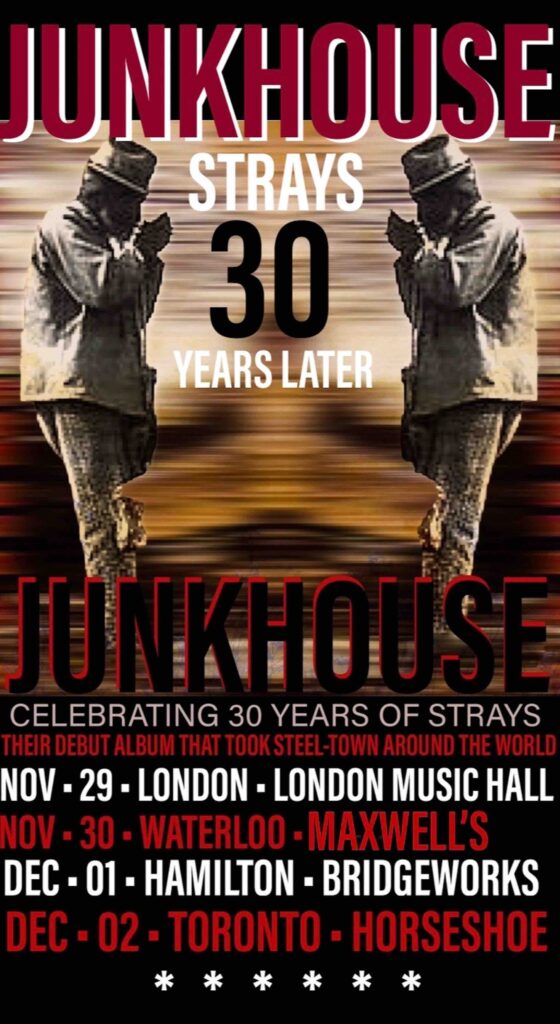Junkhouse reunites for Hamilton show Dec. 1
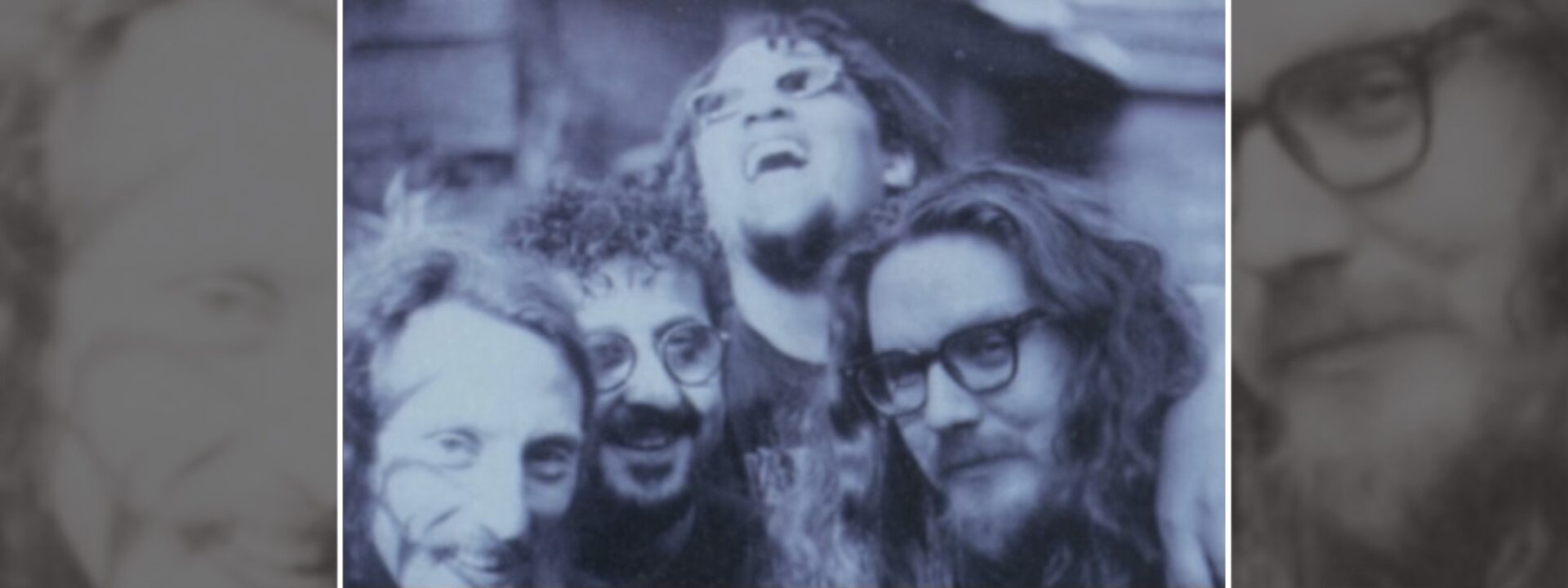
Hometown show at Bridgeworks marks 30 years for breakthrough debut album Strays, which is essentially a folk record, says frontman Tom Wilson. It went gold and launched the rock career of the band.
In the pantheon of quintessential Hamilton bands, Junkhouse ranks right up there with Crowbar and Teenage Head. These three groups achieved national commercial success in three different decades (Crowbar in the ’70s, Teenage Head in the ’80s, and Junkhouse in the ’90s), but their impact transcends sales figures. In their music, all three somehow exemplified the spirit of their home city, displaying a gritty authenticity while forging their own distinctive sound, and it’s no surprise that Junkhouse frontman Tom Wilson cites those other two bands as inspirations.
The legacy of Junkhouse is now back in the spotlight, thanks to the recent re-release of the band’s breakthrough debut album, Strays. To mark the 30th anniversary of that record, it has been issued on vinyl for the very first time, and Junkhouse is reuniting for shows next month. Excitement is building for a hometown show at Bridgeworks on Dec. 1, followed by a performance at Toronto’s Horseshoe Tavern on Dec. 2.
HCM recently chatted with Tom Wilson at his home at the foot of the Mountain. This prolific multi-media artist (musician, author, visual artist, and now playwright) always prefers to look ahead, not back, but he did consent to a trip down memory lane, revisiting the rather volatile career of Junkhouse.
The band formed in 1989, after the demise of Wilson’s previous group, the Florida Razors. Junkhouse went through a few early personnel changes (former Blue Rodeo steel player Kim Deschamps was a member at one stage) before settling on the seminal lineup of Wilson (vocals, guitar), Dan Achen (guitar), Ray Farrugia (drums), and Russell Wilson (bass).
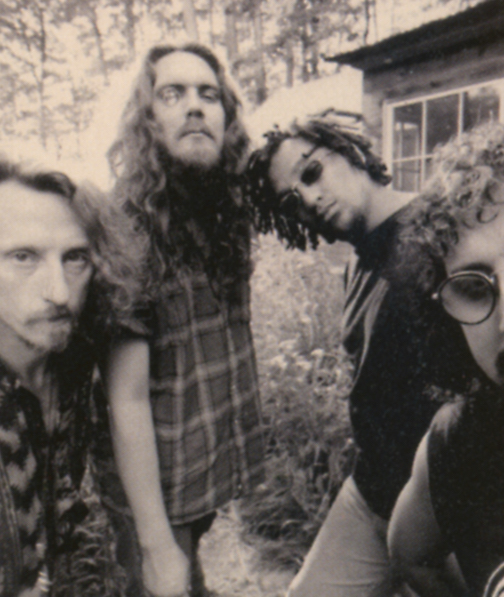
“Ray and I started the band at our kitchen table after I got back from New Orleans. Dan Lanois invited me down there and it was a creative kind of kick in the ass. It was a different way of looking at things, and I got to see that commitment to creating was way more important than having the right hairdo and trousers,” Tom Wilson recalls.
“Junkhouse was inspired by four records: Kind Of Blue by Miles Davis, Folksinger by Muddy Waters, The Trinity Session by Cowboy Junkies, and Acadie by Daniel Lanois. I had no intention for Junkhouse to be considered a rock ’n’ roll band. If you listen to Strays, it’s basically folk music. I can pick up the guitar and play those songs and it won’t sound like a rock ’n’ roll record. It is really homespun.”
That early mandate for the band did change, as Wilson’s signature virile vocals, searing guitar, and a jackhammer rhythm section seamlessly led Junkhouse into rock terrain. “When we started playing regularly at (small Toronto venue) Ultrasound, no one ever really dug it that much,” Wilson says. “We started getting a little louder and drinking, and I just remember it as a transition into something more aggressive.”
Prior to breaking out with Strays, Junkhouse paid those proverbial dues, working hard on developing its sound. “We started playing every Wednesday night at The Gown and Gavel in Hamilton,” reminisces Wilson. “I also had the job booking the place, and a couple of side businesses out of there.”
Veteran Hamilton music promoter Tom Dertinger tells HCM that “it seemed like Junkhouse played there for two years on the second floor. It was kind of the cool spot to be as the band got better. I had them open for Blue Rodeo at a Tivoli Theatre show back then, too.”
The recruitment of Russell Wilson as bassist was a crucial point in the band’s evolution. “He was a bouncer at a bar up on the Mountain owned by a rather interesting character,” Tom Wilson recalls. “Our bassist didn’t show up once so we got Russell up onstage and he played and threw people out of the bar at the same time! I’m thinking ‘I’m never going to have to worry about getting paid with this guy.’”
Then along came Achen.
“Ray and I already had this blind dumb-ass commitment that we were going down in flames. Then we met Dano when he came to Hamilton on the back of a Kawasaki Ninja, escaping a drug bust in Regina. At the time he wasn’t a conventionally great musician but he was an interesting musician.”
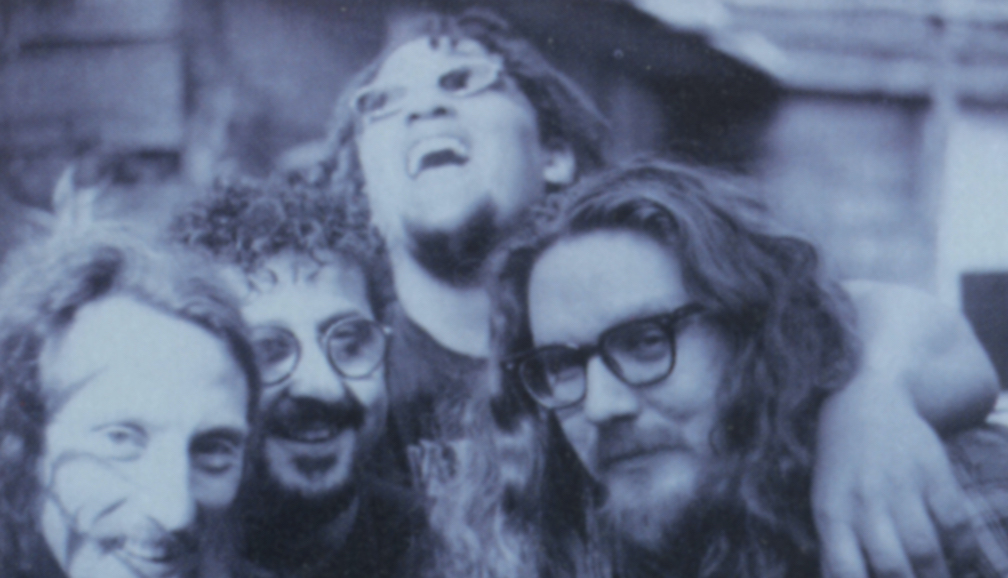
To attract the attention of the Toronto-based music industry, Junkhouse began gigging regularly at Ultrasound. “We’d play there and have enough money to put gas in the car and go for a falafel, and that was it,” says Wilson.
The persistence paid off when a tape of early Junkhouse demos reached the hands of Sony Publishing’s Mike Roth and Gary Furniss (who remains Wilson’s publisher), and they signed Wilson. “I was 32 when I got my first publishing deal. That was when I first met you. I was just figuring out how to survive as a musician,” he says.
“My peers then were already really successful, like Dan Lanois, Blue Rodeo and Colin James, with whom I’ve been writing songs for 30 years now. The people playing the same venues as us in Toronto then were like Barenaked Ladies, The Tea Party, Headstones, and Lowest Of The Low. They were all really youngsters, not in their talents, just age-wise compared to us.”
Being scruffy older rounders from Hamilton meant that Junkhouse never fit in with the trendy Queen Street West scene in Toronto. When Sony started considering signing Junkhouse to a record deal, company head Rick Camilleri and Mike Roth took Wilson out to dinner.
Wilson recalls with a chuckle that this was the only time he’s been so brash. “I said, ‘You can sign any of those cool Queen Street bands that get on the cover of (local weekly) NOW, and those #@*ers at (radio station) CFNY will play them. But if you sign Junkhouse, we’re going to sell records in Red Deer and Cornwall, all these markets where people will look at us and see something of themselves in us.’”
Sony did snap the band up, and Wilson’s prediction came true. Released in 1993 and primarily produced by Malcolm Burn (John Mellencamp, Iggy Pop, Emmylou Harris), Strays launched the career of Junkhouse with a bang. With certified gold sales, it is the best-seller of the group’s three albums, and it spawned rock radio hits, with "Out of My Head,” "Praying for the Rain,” and "Big Brown Turtle" all charting on RPM’s Top Singles chart.
“Out Of My Head’ was No. 1 in France and Holland and other markets,” Wilson recalls. “I remember waking up in a hotel room in Belgium and the video was on TV. It was shocking that a bunch of knuckleheads from Hamilton managed that!”
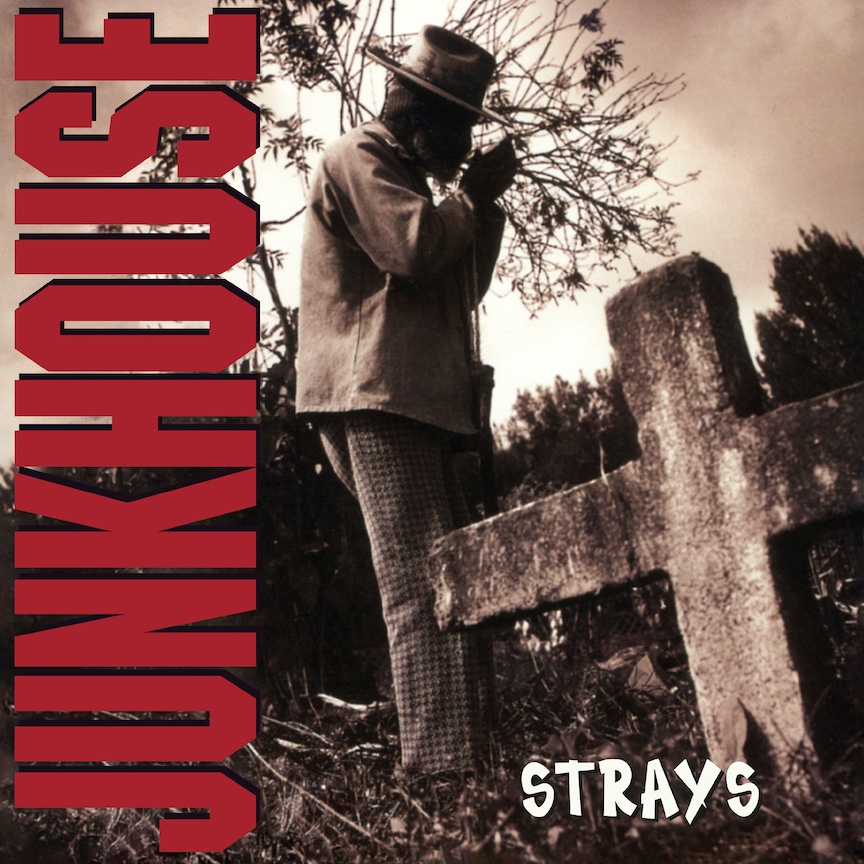
Such success came with a price, as relentless touring took a toll on Wilson and his bandmates. “I remember one tour tour started July 1 in Holland and ended Dec. 21 at Lee’s Palace in Toronto. There was the occasional week at home in there, but we were on the road all the time.
No wonder my marriage didn’t work out,” says Wilson with typical candour.
He also admits that success brought excess. “There is a lot of regret that comes along with that era, because I was playing rock star. Not in my attitude but as far as the lifestyle goes, as I was indulging in all the things that come along with that. I was at my peak of acting up and I had a whole world of people wanting to act up with me, doing things I shouldn’t have been doing.”
The years of hard touring also took a toll on Junkhouse internally. “Yes, there were fistfights,” confesses Wilson. “We didn’t dislike each other, I just think we got fed up with living with one another all the time, and I lost my respect for it.”
Russell Wilson left the group in 1996, replaced by Glen Marshall, and Wilson’s longtime comrade Colin Cripps (Crash Vegas, Blue Rodeo) joined for a spell. He had a strong creative role on the Fuzz album, prior to leaving for The Jim Cuddy Band.
“That move didn’t hurt my feelings but it rather set off alarm bells,” Wilson reflects. “Junkhouse had become a convenient place for people to hang out in for a while rather than the vital vessel it was when we started. Just look at that video of us playing on The Rita MacNeil Show on TV. Now that was a real f&&kin band!”
“Looking back at this era, there’s a lot of romance along with a lot of regret. We got to tour with Bob Dylan and Green Day, we played a festival at a castle in Scotland alongside Oasis and Jeff Buckley before they got big. I look back on our albums with pride. I really tried to keep creating art rather than commerce, and then the commerce definitely died out.”
Junkhouse called it quits in 1998, with Tom Wilson focusing his attention on rootsy super-trio Blackie and The Rodeo Kings and solo projects. Achen tragically died of a heart attack while playing hockey in 2010, but the remaining members have occasionally reunited for select shows.
For the Dec. 1 Bridgeworks show, Russell Wilson, Ray Farrugia and Tom Wilson will be joined by guitarists Aaron Goldstein (Espanola) and Champagne James Robertson and keyboardist Jesse O’Brien. Expect plenty of material from Strays alongside the Junkhouse anthem “Shine” and “Lean On Your Peers,” a Blackie and The Rodeo Kings classic originally written for Junkhouse.
“I’m looking forward to playing these songs after all these years,” says Wilson. “It’s a great opportunity to look at that time in our lives.”
